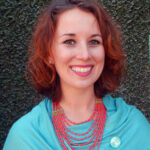“If you were born in Canada, you won!” was the catchphrase that came to mind during my flight’s turbulent descent into Toronto airport. The next thing I knew, flight EK 241 was making harsh contact with the runway, followed by the pilot’s announcement: “Welcome to Toronto Pearson International Airport.”
I couldn’t believe my ears. Am I really here? After twenty-nine months, am I finally back?
I stood up slowly, as you do after a 14-hour flight and let out a big sigh of relief.
I was back in Canada, my home and native land.
As I trudged through the airport, I considered how elated my grandma would be. During my time away, she always made it a point to end our calls by reminding me that people around the world were dying to get into Canada, hoping to create stable opportunities for themselves and their families.
And there I was, instead, gallivanting to every developing Asian country I could locate on a map.
The birthright lottery
Having won the birthright lottery, that is, a Canadian passport, I’ve always felt as if it was my duty and responsibility to understand the value of my citizenship. My grandma was right – people risk their lives for a chance to have a decent life in Canada.
But, I’ve also always wanted to know more about the struggle of newcomers and perhaps gain a better understanding of how immigrants and dual citizens identify once they are in Canada. Do they identify as strangers? Does Canada ever truly feel like their home?
Two and a half years have passed since I set foot on Canadian soil. For some, that seems like a lifetime to go without seeing family, friends, or a house pet.
But after living across Asia and witnessing the sacrifices people make to provide for their family – seeing their spouses and children on a short holiday once a year, if that, for example – my absence and sacrifice seem very brief and insignificant.
Defining Strangers at Home
A “stranger” is an individual who does not belong as her position in a group is determined by the fact that she has not belonged to it from the beginning. A “home” may be understood to be a place where individuals experience a sense of security and are comfortable in familiar surroundings.
Therefore, feeling like a stranger suggests that an individual does not identify with the people around him, and consequently, does not belong or does not feel accepted in the place that he identifies as home.
As I took my place in the “citizen” queue in the customs hall, I couldn’t help but feel as if something was wrong.
By now, I knew bits of several languages, had become accustomed to eating rice with my hands, greeted people by saying “Namaste” and mastered the skill of washing my hair upside-down in a bucket. My norms, customs and mannerisms would come across as abnormal to the rest of my native, Canadian comrades. For the first time, I felt like a stranger at home.
Understanding the Other
The customs officer signaled that it was okay for me to approach the counter. He flipped through my passport – pages now filled with stamps and visas – and without a question about my two-and-a-half-year absence, waved me through with a jaunty, “Welcome home.”
I looked back at the long line of anxious visitors, hands filled with papers and documents. Not only had I travelled all over Asia without struggle, but I was able to come “home” after an extended trip and not be questioned about my absence.
It was in that moment that I understood why all the sacrifice and risk was worth the chance in Canada.
Now settled in Toronto, not a day goes by when I don’t feel grateful for my citizenship.
While I’m still adjusting to life in the city, there’s no question I’ve gained a better understanding of how new immigrants and dual citizens may feel upon their arrival in Canada, as I now identify with countries and ethnic groups not part of my country of origin.
After so much sacrifice in the hopes for a better life, the ambiguity around identity and desire to identify with one’s new “home” must be difficult for new residents. Building a new life is one thing; however, reconstructing one’s sense of belonging to a nation must require time.
As I greeted my uncle in the arrivals hall and looked around at the room filled with diverse faces, I realized that to identify as a stranger is to empathize with all Canadians – because diversity has built our land.
An experienced mentor to women in business and the youth, Laska has an unshakeable passion for writing. Inspired by helping people realize their human potential, when not coaching a client or sitting at her computer creating engaging content, you will find her outside seeking adventure.
An experienced mentor to women in business and the youth, Laska has an unshakeable passion for writing. Inspired by helping people realize their human potential, when not coaching a client or sitting at her computer creating engaging content, you will find her outside seeking adventure.





